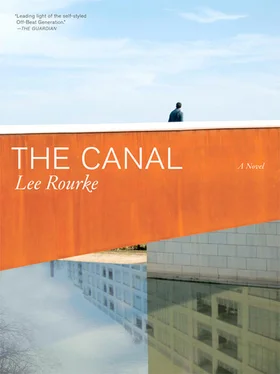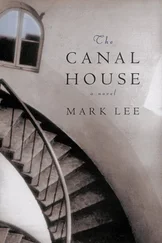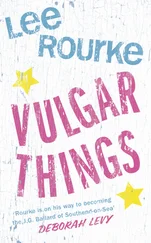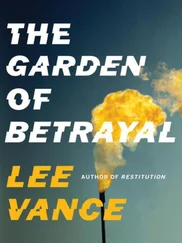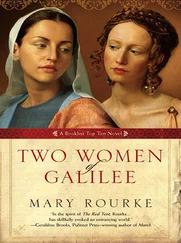Her eyes were completely dead: two giant empty pools of nothingness, drained of all life and hope, of any sense that they may have opened at any given moment, and everything I had witnessed was some cruel, sick hoax played by my decaying mind. I could have dealt with it if that’s all it was, if it meant her opening her dead eyes at that moment, to look at me, and then to ask me what had happened to her.
We soon attracted attention — a cyclist. He rushed over, throwing his bike down, and knelt down beside her. He checked her for certain things: breathing, pulse, wounds, et cetera. I asked him to leave her alone, to stop touching her, or the swan, and leave them be, to leave them alone together. He took out his mobile phone and asked me if I had called for help. I shrugged my shoulders helplessly, and he immediately began to shout at me angrily. He looked like he was going to throttle me, but he phoned through to the emergency services instead. He called for an ambulance, talking through her injuries and condition with the operator. Then he phoned through to the RSPB and asked them to come and collect the dead swan. Finally, he called the police. I stood there, motionless, above him, as he crouched down beside her. He kept on asking me, over and over again, what had happened, but I looked at her and the dead swan, repeating the same words.
“ It was them. It was them. It was them. It was them. It was them. It was them. It was them. It was them. It was them. It was them. It was them. It was them .”
He began to yell at me again, although this time he was a little calmer in his approach, fatigued by my catatonic state. And then something strange happened: it suddenly stopped raining. As if somebody had switched off a shower in a bathroom, as suddenly as that. The rain simply stopped pouring so abruptly, it seemed almost biblical. I walked up to the opening of the walkway to Shepherdess Walk and leant against the new wall. I could feel the dampness of the rain soaking through the arm of my jacket now. And I knew right there, by Shepherdess Walk, what I had to do. It came to me in a flash.
From where I was leaning I could see up onto the bridge: it was empty and there was no sign that anyone, let alone a group of youths shooting at the swans with a crossbow, had been there at all. Everything up there looked calm and eerily quiet. Beyond the bridge and above the old warehouses in the distance, I could see the once thick, heavy clouds beginning to break, and light start to burst through them, great slanting beams of it cascading down to the earth, engulfing the gloom around them.
The police, RSPB, and ambulance crew all seemed to descend upon her and the swan at once. I watched it all happen: the swan carefully taken off her and lifted up into the white van parked on the Packington Estate. I watched them take her away, into the ambulance, her face covered. I eventually gave my statement to the police. They took me off to the police station near Old Street and asked me lots of awkward questions. They acted like they didn’t believe me. I told them everything. When we had finished I asked them to give me a lift back to the canal. Then I walked back to the same spot where it had all happened. It had been cordoned off but I got as close to it as I could get by the rusting iron bridge and the canal, watching the coots and the Canada geese. The dead swan’s mate was circling the spot where her mate had been hit, nonchalantly sifting the bed for food as if nothing had happened. Then, suddenly, it stopped doing what it was doing. As if it had just realised. It floated there, without moving, on the same spot where its mate had thrashed so violently. I watched her. She was beautiful. I stood watching her until she floated away, down the canal towards Wenlock Basin.
All the staff from the whitewashed office block had now dispersed from the company esplanade where they had eventually gathered to watch the whole scene with the ambulance crew, the RSPB, and the police unfold. I looked to see if I could see the man in the tight clothes and the woman, but they had gone, too. I wondered if they knew who the victim was. I wondered if they had realised it was the woman from the café who had accosted them earlier in the day. Maybe they would never know.
Maybe that’s the best thing all around.
The rusting iron bridge had been cordoned off and a lone policeman was standing there, guarding the scene. He had told me to go home a number of times — but I didn’t want to. He stood there. Acting on orders. Completing his task.
I was sure he was watching the coots, counting the Canada geese, and watching the murky water drift by him. He looked at his watch a number of times. Then he wrote something in his notepad before looking down to his feet and then checking the cordon a number of times; it seemed to be sagging in the middle. He strengthened the knots at each end, causing the cordon to become taut again. Then, as the clouds began to thicken the canal darkened. The murky water turned black like oil and a cold wind began to whip up its surface, causing ripples to intensify into a bubbling, choppy current of black goo that I thought looked quite beautiful in its own way. In the distance, up on the Packington Estate, I could hear a police siren rearing through the narrow streets. I guessed it was in pursuit of a stolen car as there were numerous screeches of tyres and grinding of gear boxes, then it began to fade as it left the estate. It began to fade. Everything began to fade.
I walked up a bit, past Shepherdess Walk, up towards the tree that I used to climb with the help from my brother. I took out my front door key and scratched her initials into the soft, wet bark. Then I walked home.
I was hungry. I had things to do.
I was raging. I wasn’t thinking straight. I looked about, around my feet, in the nearest bushes, for something I could use: a stick or a brick. I picked up a short scaffolding pole from beside a contractor’s skip. I held it in my hands, it was heavy enough to do some damage if needed. It was heavy enough to cause a serious facture, to smash teeth. To inflict serious damage.
I wanted to find them.
I wanted their mobile phone. They must have filmed the whole scene, the way they filmed the nonsense with the scooter. They way they knew no shame. They must have. I ran into the Packington Estate. The streets were empty. Silent. I wanted to find them. I gripped the pole tightly. I was ready to use it. I was ready to smash each and every one of them. I looked into every window I could, to see if they were there. I wanted to find them, to find that camera. I wanted to see it all happen again, to see it how they had seen it. I wanted to know exactly what they had filmed. I wanted to know, to see with my own eyes, if they had filmed her slip, her pathetic death. I wandered the streets, the scaffolding pole in my right hand. I walked into gardens thinking they may have been hiding, but I couldn’t see them, I couldn’t see anyone. It was as if the entire estate had vanished, just up and left for good.
I don’t know how long I wandered there, looking for them. I don’t know how long I held that scaffolding pole in my hands, convinced that I would use it. I don’t even remember walking away, or giving up. I just wanted to smash them with the pole and get hold of their mobile phone, to see the events they had been filming, to see it all from their point of view. To pause the film where I wanted it to stop. To play it back and stop it just before the arrow hit its target. To fast forward past that moment, towards her, to catch her movement, to see her move again. To pause it on her face, if they had filmed her, to keep it paused in her beautiful face. Paused.
Eventually, I must have just dropped the pole by my feet and walked away, turned on my heels and left the estate.
Читать дальше
